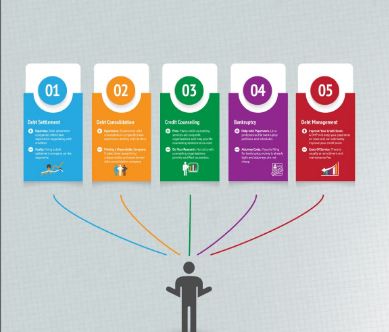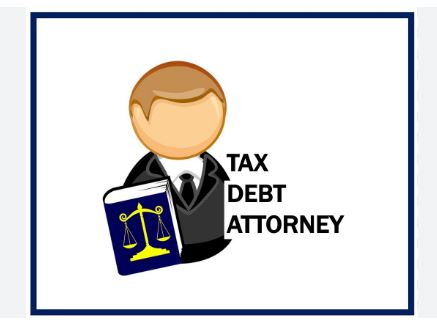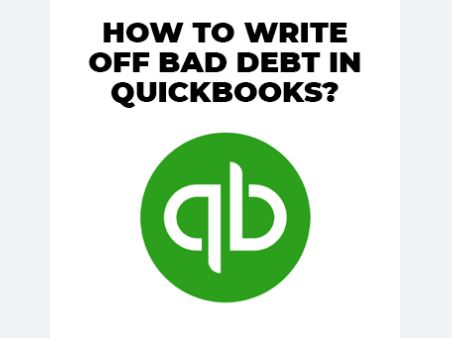Dealing with debt collectors can be daunting, but understanding how to negotiate with them can help you regain control of your finances. This comprehensive guide explores practical tactics and steps that can empower you to manage and arrange your debts effectively.
What Steps Should I Take Before Negotiating With A Debt Collector?
Before negotiating with a debt collector, laying the groundwork for a successful outcome is essential. This preparation is crucial and entails several vital actions:
Verify the debt’s legitimacy: It’s essential to confirm that the debt is yours and that the collector is legally authorised to collect it. Start by asking for a validation letter, and check this information against your records to ensure everything matches up.
Know your rights: The Fair Debt Collection Practices Act (FDCPA) protects consumers from unfair debt collection practices. Being familiar with your rights will set a foundation for negotiation and protect you from being taken advantage of.
Assess your financial situation: It’s essential to be realistic about how much you can pay. Review your monthly income and essential spending to figure out a feasible amount without putting additional strain on your budget.
Document all communications: Keeping detailed records of every interaction with the debt collector is crucial. This includes dates, times, names, and summaries of conversations to support your case if any issues arise.
Settle on a strategy: Determine whether a lump-sum payment, a https://aforfinance.com/debt-repayment/payment plan, or the services of a debt settlement company is the best approach for your situation. Be aware of the potential credit score implications that come with each option.
These steps will ensure you are well-prepared and go into negotiations confidently and clearly.
How Can I Ensure That The Debt Collector Is Legitimate Before I Begin Negotiations?
The legitimacy of the debt collector is a significant concern when it comes to managing debts. Here’s how you can protect yourself against scams:
Verify the collector’s credentials: Start by checking if they are licensed in your state, which can be done through your state’s regulatory agency or attorney general’s office.
Ask for written validation: Any legitimate collector must provide you with a written notice of the debt, including detailed information about the amount owed and the original creditor.
Cross-reference your records: Make sure the debt they’re trying to collect is yours by comparing their information with your financial documents.
Research the collection agency: Look up the agency online for any reviews, complaints, or potential scams that might have been reported.
Be cautious of pressure tactics: Immediate payment demands or undue pressure are warning signs. Legitimate agencies should provide you with the debt details and repayment options.
By taking these precautions, you can enter into the negotiation process with confidence that you are dealing with a bona fide collector.
What Are Some Common Negotiation Tactics To Reduce My Debt Amount?
Reducing your debt amount requires a strategic approach. Here are tactics that can assist you in negotiating your debt down:
Know Your Financial Situation: Before discussing any agreements with a creditor, you must clearly understand your financial capabilities. This information can help you negotiate terms that are manageable for your situation.
Do Your Research: Knowing the age of your debt and the relevant statutes of limitations can significantly impact your bargaining leverage. This knowledge might turn the negotiation in your favour.
Offer a Lump Sum Payment: Many creditors are open to accepting a lump sum payment, often for less than the total debt owed, because they prefer to collect a smaller guaranteed amount rather than pursue the total sum over an extended period or risk non-payment.
Create a Hardship Case: Be honest about it if you’re experiencing difficult times, such as medical emergencies or job loss. Creditors may show leeway if they’re aware of your situation.
Always Get Agreements in Writing: Once you’ve reached a verbal agreement, request it in writing. This protects you from future claims arising from misunderstandings and ensures that both parties hold to their word.
These tactics can help you lower the debt owed, but always remember to negotiate terms within your financial ability to fulfil them.
How Should I Respond If A Debt Collector Refuses My Negotiation Offer?
Your initial negotiation attempt may not be successful. If a debt collector refuses your offer:
- Remain composed and professional, as aggression can hinder subsequent negotiations.
- Politely ask for a written explanation for the refusal to gain insights on how to improve your offer.
- Revisit your budget to see whether there’s flexibility to improve your proposal while still being financially responsible.
- Seek professional advice from a consumer credit counsellor or an attorney if needed.
- Document every interaction for accountability and potential evidence if unfair practices arise.
While a refusal can be discouraging, persistence and a willingness to adapt your approach can lead to a successful negotiation in the long term.
What Should I Do After Reaching A Negotiated Agreement With A Debt Collector To Ensure The Terms Are Honored?
After reaching an agreement, it’s crucial to safeguard the negotiated terms:
- Obtain written confirmation: Ensure you receive a formal agreement stating all the terms, including payment amounts and due dates.
- Keep detailed records: Continue documenting all communication and payment transactions to establish a trail of evidence should any issue arise.
- Make payments as agreed: Fulfilling your part of the agreement is essential. Late or missed payments could invalidate the negotiated terms.
- Monitor your credit report: Monitor your credit report to verify that the collector has updated your account status according to the agreement.
- Address discrepancies immediately: If the collector deviates from the agreed terms, contact them immediately to resolve the issue, using your written agreement as proof.
Following these steps, you create a framework for ensuring the negotiated agreement is respected and executed as planned.
How Much Will A Debt Collector Settle For?
Undoubtedly, a significant concern when negotiating is what percentage of the debt collection agencies are typically willing to accept as a settlement:
- Debt collectors are often prepared to settle for less than the total amount owed, sometimes between 40% and 60%, but this is influenced by several factors, such as the age of the debt and the debtor’s financial hardship.
- Offering a lump sum can lead to a better settlement outcome, as collectors may find this more appealing than monthly payments.
- Consider starting low, such as at 30% of the total debt, when making your initial offer to allow room for negotiation.
- Document the settlement terms in writing to prevent future disputes and ensure that both parties agree.
Remember, the willingness of collectors to settle and for how much can vary widely based on individual circumstances.
How To Negotiate With Debt Collectors Via Letter
If you’re more comfortable negotiating in writing, a carefully crafted letter can be an effective tool:
- Begin explicitly to negotiate and state your commitment to resolving the amount owed.
- Include proof of your precarious financial condition to fortify your position for a reduced settlement.
- Suggest a realistic repayment strategy that aligns with your economic state.
- Ask the collector to halt the accumulation of any further interest or fees while negotiations are underway.
- Conclude by encouraging a dialogue, showing your commitment to finding a mutually acceptable solution.
A well-thought-out letter can be a powerful means to initiate negotiations, setting a professional tone for the communication.
How To Negotiate With Creditors To Reduce Your Debt
Negotiating directly with creditors to reduce your debt involves several key steps:
- Critically assess your debts and your ability to meet them. Enter negotiations with a realistic plan you’re able to stick to.
- Approach your creditors prepared to discuss your financial limitations openly and candidly.
- Maintain professionalism throughout the negotiation process to keep discussions constructive.
- Don’t hesitate to request more favourable terms if your situation justifies them.
- Ensure all agreed terms are documented in writing for clarity and future reference.
Approaching creditors with a sincere willingness to resolve your debts can lead to beneficial adjustments to your debt terms.
How To Negotiate A Debt Settlement With A Law Firm
Working directly with a law firm to negotiate a debt settlement involves upfront preparation:
- A realistic understanding of your financial limits before discussing settlement with a law firm is critical, as it will guide your negotiation strategy.
- Having all pertinent financial documentation at hand will provide the necessary evidence to support your case during negotiations.
- Contacting the law firm pre-emptively can demonstrate your commitment and potentially enhance your bargaining position.
- Put forward a settlement proposal, whether a payment plan or a lump sum, within your financial means but also potentially acceptable to the creditor.
Being proactive and prepared when dealing with a law firm can lead to a more successful debt settlement.
If I Settle With A Collection Agency, Will It Hurt My Credit?
Settling with a collection agency will affect your credit in several ways:
- Though you’re resolving the debt, the report showing the settlement for less than the total amount can be seen unfavourably by future lenders.
- Settled statuses are less damaging than ongoing unpaid debts but not as beneficial as paying the total amount.
- The impact can decrease, especially if you continue positive credit habits.
- Ensure you understand how the settlement will be reported and get the terms in writing.
Settlements can offer a compromise, resolving a debt more affordably while having less negative impact than ongoing collections. Negotiating with debt collectors can feel overwhelming, but it can become a manageable process with the proper knowledge and approach.
Whether you’re confirming the legitimacy of the debt, discussing potential reductions, or ensuring that an agreement is honoured, the key to success lies in being informed, prepared, and persistent.
Always keep records, remain professional, and stick to realistic payment plans. You can work towards financial stability and peace of mind with diligence and strategic negotiation.
Remember, it’s not just about settling debts—it’s about building a sustainable economic future for yourself.






